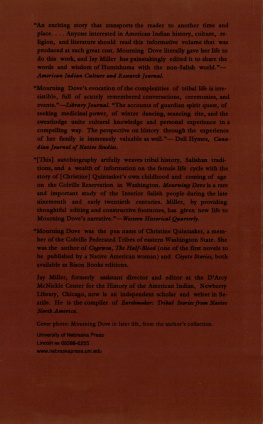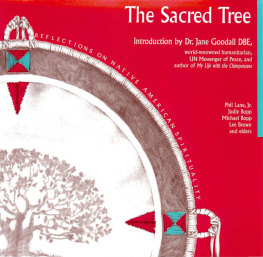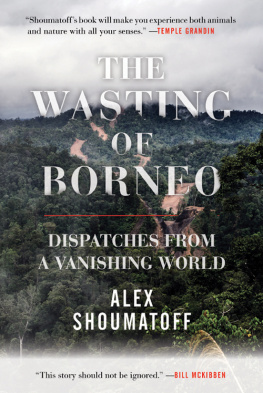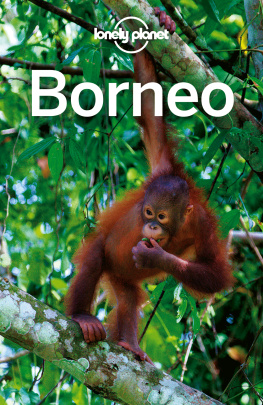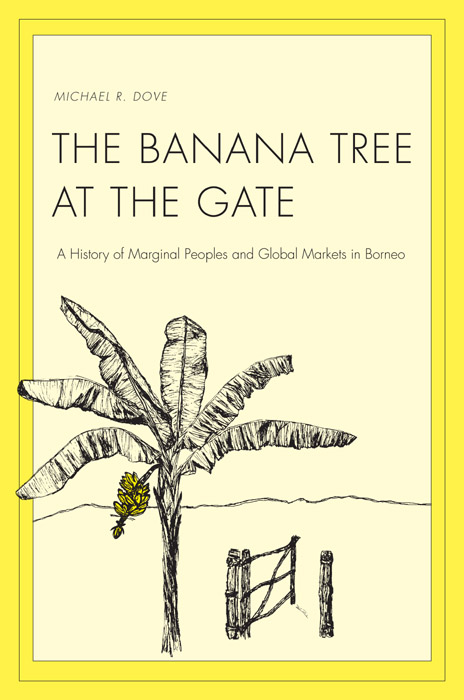Yale Agrarian Studies Series
J AMES C. S COTT,Series Editor
The Agrarian Studies Series at Yale University Press seeks to publish outstanding and original interdisciplinary work on agriculture and rural societyfor any period, in any location. Works of daring that question existing paradigms and fill abstract categories with the lived-experience of rural people are especially encouraged.
James C. Scott, Series Editor
James C. Scott, Seeing Like a State: How Certain Schemes to Improve the Human Condition Have Failed
Brian Donahue, The Great Meadow: Farmers and the Land in Colonial Concord
J. Gary Taylor and Patricia J. Scharlin, Smart Alliance: How a Global Corporation and Environmental Activists Transformed a Tarnished Brand
Michael Goldman, Imperial Nature: The World Bank and Struggles for Social Justice in the Age of Globalization
Arvid Nelson, Cold War Ecology: Forests, Farms, and People in the East German Landscape, 1945-1989
Steve Striffler, Chicken: The Dangerous Transformation of Americas Favorite Food
Parker Shipton, The Nature of Entrustment: Intimacy, Exchange, and the Sacred in Africa
Alissa Hamilton, Squeezed: What You Dont Know About Orange Juice
Parker Shipton, Mortgaging the Ancestors: Ideologies of Attachment in Africa
Bill Winders, The Politics of Food Supply: U.S. Agricultural Policy in the World Economy
James C. Scott, The Art of Not Being Governed: An Anarchist History of Upland Southeast Asia
Stephen K. Wegren, Land Reform in Russia: Institutional Design and Behavioral Responses
Benjamin R. Cohen, Notes from the Ground: Science, Soil, and Society in the American Countryside
Parker Shipton, Credit Between Cultures: Farmers, Financiers, and Misunderstanding in Africa
Paul Sillitoe, From Land to Mouth: The Agricultural Economy of the Wola of the New Guinea Highlands
Sara M. Gregg, Managing the Mountains: Land Use Planning, the New Deal, and the Creation of a Federal Landscape in Appalachia
Michael Dove, The Banana Tree at the Gate: A History of Marginal Peoples and Global Markets in Borneo
Patrick Barron, Rachael Diprose, and Michael Woolcock, Contesting Development: Participatory Projects and Local Conflict Dynamics in Indonesia
For a complete list of titles in the Yale Agrarian Studies Series, visit www.yalebooks.com.
The Banana Tree
at the Gate
A History of Marginal Peoples
and Global Markets in Borneo
Michael R. Dove
Yale UNIVERSITY PRESS NEW HEAVEN & LONDON
Published with assistance from the Louis Stern Memorial Fund.
Copyright 2011 by Michael R. Dove.
All rights reserved.
This book may not be reproduced, in whole or in part, including illustrations, in any form (beyond that copying permitted by Sections 107 and 108 of the U.S. Copyright Law and except by reviewers for the public press), without written permission from the publishers.
epigraph: High Hopes, words by Sammy Cahn, music by James van Heusen, copyright 1959 (renewed) Maraville Music Corp. All rights reserved. Reprinted by permission of Hal Leonard Corporation.
Yale University Press books may be purchased in quantity for educational, business, or promotional use. For information, please e-mail (U.K. office).
Set in Ehrhardt and The Sans types by Tseng Information Systems, Inc.
Printed in the United States of America.
Library of Congress Cataloging-in-Publication Data
Dove, Michael, 1949
The banana tree at the gate: a history of marginal peoples and global markets in Borneo / Michael R. Dove.
p. cm. (Yale agrarian studies series)
Includes bibliographical references and index.
ISBN 978-0-300-15321-7 (hardcover: alk. paper) 1. Marginality, SocialBorneoHistory.
2. MarketsSocial aspectsBorneoHistory. I. Title. II. Series: Yale agrarian studies.
HN930.7.Z9M37 2011
306.349095983dc22 2010015137
A catalogue record for this book is available from the British Library.
This paper meets the requirements of ANSI/NISO Z39.48-1992 (Permanence of Paper).
10 9 8 7 6 5 4 3 2 1
This work is dedicated to Carol Carpenter, who helped me start down the long path that led to this book.
Just what makes that little ol ant,
Think hell move that rubber tree plant.
Anyone knows an ant, cant
Move a rubber tree plant.
But hes got high hopes, hes got high hopes,
Hes got high apple pie in the sky hopes.
Sammy Cahn (1959)
Contents
Preface
When I first began fieldwork in Indonesian Borneo in 1974, in a longhouse of Kantu Dayak located two weeks travel upriver from the coast in West Kalimantan, I was greeted with questions and speculation as to whether I was one of the Keling. This name subsumes a group of named individuals, including Kumangthe wife of Kelingand Laja and Ijautheir cousinswho are collectively called the sebuah kana (the fabled ones). (Richards [1981] translates these terms from the Iban as spirit deities.) The Kantu said that they once lived together serumah (in one longhouse) with the Keling, and at least one location on the nearby Mount Kedempai is identified as the site of one of their former settlements. The Keling are said to have looked like human beings, like the Kantu themselves, but to have differed from the Kantu in important ways: they kept fire in bronze vessels; they had yellow skin and wore yellow clothing; they could acquire valuable things without working for them; and they are said to have had other supernatural powers as well. The Kantu claim that they copied their marital adat (customary law), especially that regarding the fetching of brides from wife-givers and the escorting of grooms to husband-takers, from the Keling. They say that the Keling helped the Kantu in their historic wars with the Iban, but as the result of some dispute related to these warssome say over competing claims to Iban trophy headsthe Keling left the Kantu. Some say they went to Majapahit on Java, but before they left they made this promise: whenever the Kantu need their help in war, they can be summoned by drum and/or war cry (see Sandin 1994 and Wadley 2004 for the Iban view of the Kelings role in war). The Keling are also supplicated in ritual and prayer on other occasions, most notably by the Kantu when starting out on trading expeditions.
It is not unusual for anthropologists to be thus greeted in the field. Whenever an anthropologist or any other outsider enters a community, community members usually try to fit the newcomer into so that he or she can thus be accommodated and explained byexisting social structures and world views. Sometimes this encompasses local visions of the past and even future, as in Anna Tsings (1993) placement by her South Kalimantan mentor, Uma Adang, in a tale stretching back to the kingdom of Majapahit and forward to a new era of kings and peace (cf. Braginsky and Murtagh 2007 on Indo-Malay portrayals of foreigners).
I credit the people who thus try to make sense of the coming of anthropologistsUma Adang kept asking Tsing, What are you really here for?with more historical insight than is implied in the anthropologists typical embarrassment at such moments. I suggest that anthropologists do not simply get fitted into local histories by our informants, but that we are already fitted in by our own histories. In my own case, the wider political, economic, and social currents that made it possible for me to work among the Kantu, which literally brought me to the doors of their longhouses, were bringing, or were soon to bring, other historic changes that would have far-reaching consequences for their lives. These changes included logging, plantation development, road building, transmigration, primary education, and, more generally, the ever-focusing gaze of the Indonesian state. In some sense therefore, my arrival among the Kantu both heralded and personified these coming changes, of which I too was a product. But most crucial, these were not changes coming to a society that did not know change, and this is why my initial linkage to the Keling is important.


